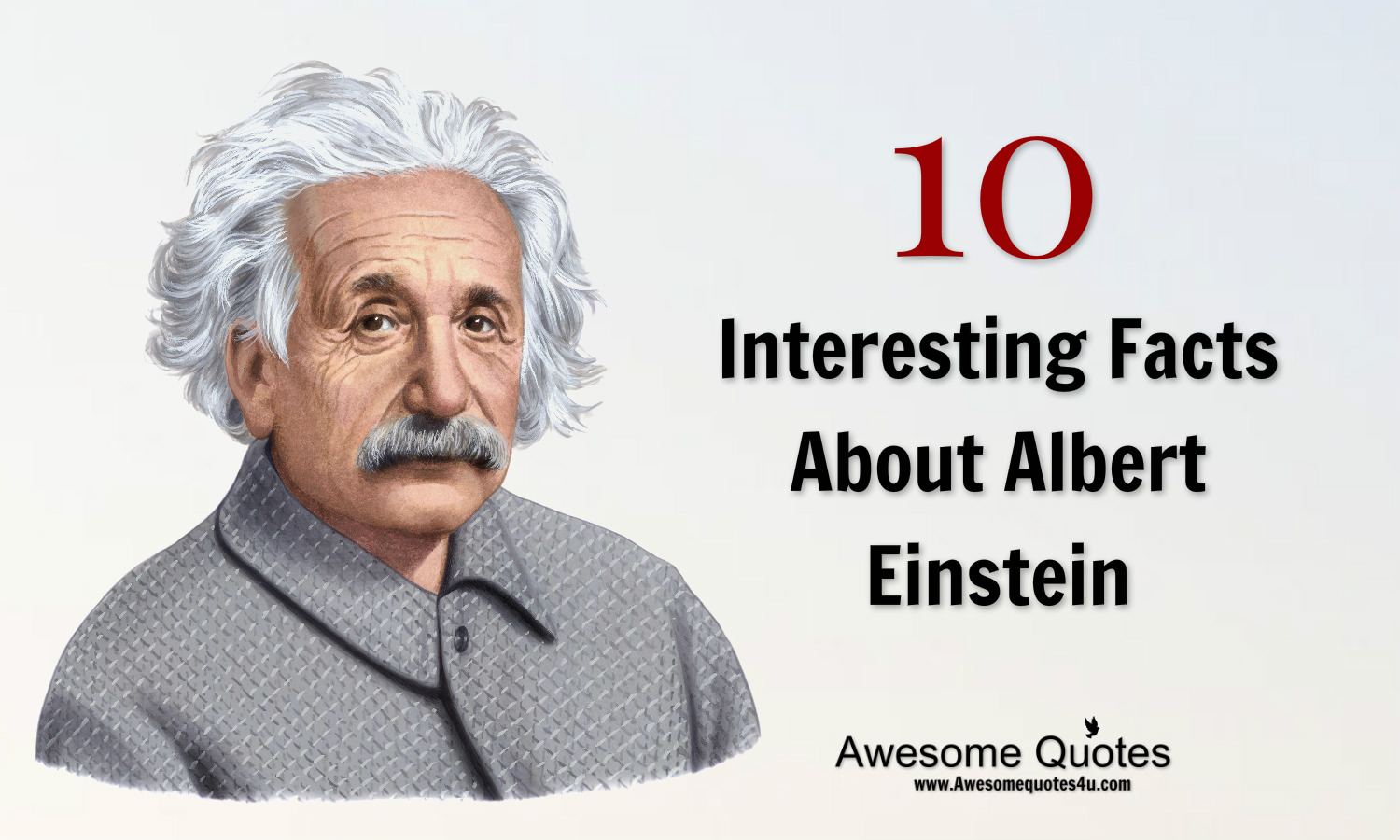Albert Einstein is a name that resonates across the globe, synonymous with genius and revolutionary ideas in the realm of physics. His theories not only changed the way we perceive time and space but also opened the door to countless scientific advancements that followed. However, his life was not just about equations and theories; it was a tapestry of interesting experiences, challenges, and triumphs that shaped his character and contributions. Exploring interesting facts about Albert Einstein unveils a persona that is as captivating as his scientific achievements.
From his early days in Germany to becoming a Nobel Prize-winning physicist, Einstein's journey is filled with remarkable anecdotes and lesser-known facts. These stories provide insight into his personality, his struggles, and the unique characteristics that set him apart from his contemporaries. The intriguing aspects of his life reveal not only a brilliant mind but also a man of deep curiosity, humor, and resilience. Join us as we delve into the fascinating world of one of history's most iconic figures and uncover interesting facts about Albert Einstein that you may not have known.
By examining various facets of his life, we can appreciate not just his scientific contributions, but also the man behind the genius. Whether you're a student of science, a history buff, or simply someone looking to learn more about this extraordinary individual, the following sections are sure to illuminate the many interesting facts about Albert Einstein and how they relate to our understanding of him today.
What Was Albert Einstein's Early Life Like?
Albert Einstein was born on March 14, 1879, in Ulm, Germany. His family moved to Munich soon after his birth. His father, Hermann Einstein, was a salesman and engineer, while his mother, Pauline Koch, was a homemaker. From a young age, Einstein displayed an unusual curiosity and a deep interest in science and mathematics, which would later define his career.
What Were Some Personal Details and Bio Data of Albert Einstein?
| Detail | Information |
|---|---|
| Name | Albert Einstein |
| Birth Date | March 14, 1879 |
| Birth Place | Ulm, Germany |
| Nationality | German, later Swiss and American |
| Education | Polytechnic Institute of Zurich |
| Famous For | Theory of Relativity, Photoelectric Effect |
| Nobel Prize | 1921 in Physics |
| Death | April 18, 1955 |
What Are Some Interesting Facts About Albert Einstein's Career?
Albert Einstein's career was nothing short of extraordinary, marked by groundbreaking discoveries and influential ideas. Here are some interesting facts about Albert Einstein's professional journey:
- At the age of 26, Einstein published four papers in 1905 that laid the foundation for modern physics, including his famous equation E=mc².
- He served as a professor at several prestigious institutions, including the University of Berlin and the Institute for Advanced Study in Princeton.
- Einstein's work on the photoelectric effect contributed significantly to the development of quantum mechanics, earning him the Nobel Prize in Physics in 1921.
- He was also involved in the Manhattan Project but later expressed regret about the development of atomic weapons.
How Did Albert Einstein Influence Modern Physics?
Einstein's theories revolutionized the way we understand the universe. His theory of relativity, particularly the general theory, changed the perception of gravity as a curvature of spacetime rather than a conventional force. This shift in thinking laid the groundwork for advancements in cosmology and astrophysics.
What Are Some Lesser-Known Interesting Facts About Albert Einstein?
While many know of Einstein's scientific contributions, there are several lesser-known interesting facts about Albert Einstein that highlight his unique personality:
- Einstein was a talented musician and played the violin, often saying that music was an essential part of his life.
- He had a playful sense of humor and was known for his quirky personality, including his unkempt hair and disregard for conventional attire.
- Einstein was offered the presidency of Israel in 1952 but declined the position, stating he lacked the necessary experience.
- He was an advocate for civil rights and spoke out against racism and nationalism throughout his life.
What Legacy Did Albert Einstein Leave Behind?
Einstein's impact on science and culture is immeasurable. His theories continue to influence various fields, including physics, engineering, and even philosophy. He inspired generations of scientists and thinkers, emphasizing the importance of curiosity and imagination in the pursuit of knowledge.
How Is Albert Einstein Remembered Today?
Today, Albert Einstein is celebrated not only as a scientific genius but also as a cultural icon. His image is synonymous with intelligence, and his quotes are often referenced in discussions about science and philosophy. He remains a symbol of innovation and creativity, reminding us of the power of human thought.
What Can We Learn From Albert Einstein's Life?
Albert Einstein's life conveys valuable lessons about perseverance, curiosity, and the importance of thinking outside the box. His journey from a curious child to a revolutionary scientist exemplifies the potential within each of us to challenge norms and make significant contributions to the world.
Conclusion: Why Are the Interesting Facts About Albert Einstein Important?
Exploring the interesting facts about Albert Einstein reveals the complexity of his character and the profound impact he had on science and society. His legacy serves as a reminder of the importance of inquiry, creativity, and the courage to embrace new ideas. As we continue to study his life and work, we gain insights that encourage us to think critically and strive for greatness in our pursuits.
Unveiling The Age Of Hulk Hogan: A Journey Through Time
Is Bob Seger Still Alive? The Truth Behind The Rumors
Tala Alamuddin: A Deep Dive Into Her Net Worth


